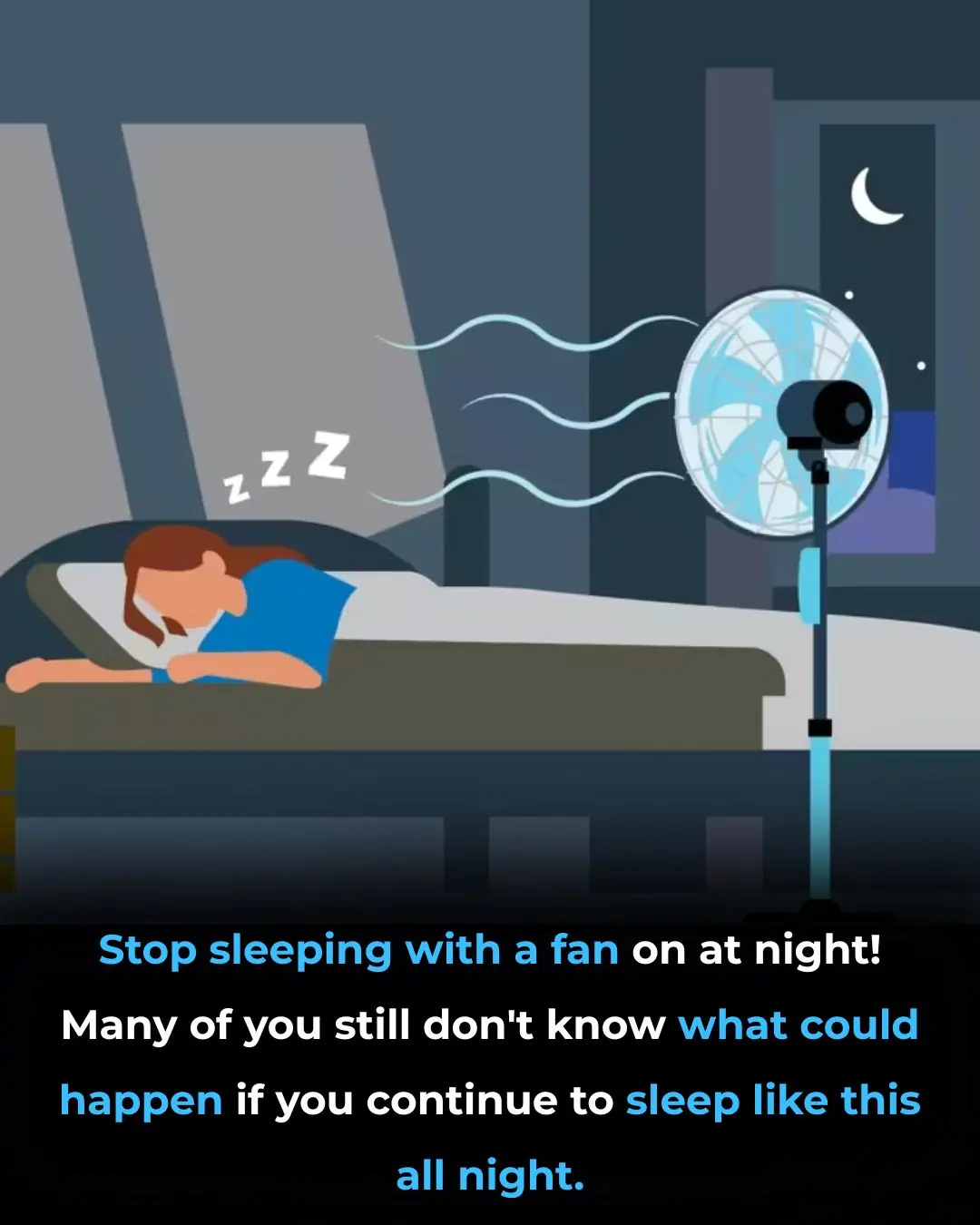
9 Signs of Diabetes That Appear at Night: What You Need to Know!
Diabetes often develops quietly and gradually, sometimes going unnoticed for years. Many of its earliest warning signs appear at night, when your body’s blood sugar levels fluctuate more dramatically.
Recognizing these nighttime symptoms early can help you prevent serious complications, manage your condition more effectively, and regain control of your health before diabetes progresses.
⚠️ 1. Frequent Night Urination (Nocturia)
Waking up several times during the night to urinate can be one of the first red flags of elevated blood sugar levels. When glucose builds up in the bloodstream, your kidneys work harder to filter out the excess sugar, which draws more water from your body and leads to increased urination.
What you can do:
-
Limit fluids 1–2 hours before bedtime, especially sugary drinks or caffeine.
-
Have a light, low-carb dinner to prevent nighttime glucose spikes.
-
If frequent urination continues for several nights, get your blood sugar tested promptly.
💦 2. Night Sweats (Excessive Sweating During Sleep)
If you often wake up drenched in sweat, even in a cool room, your blood sugar may be dropping too low (hypoglycemia) during sleep. When that happens, your body releases adrenaline to correct it — causing sweating, restlessness, or vivid dreams.
How to manage it:
-
Eat a small, balanced snack before bed — for example, a few nuts or a slice of apple with peanut butter.
-
Avoid alcohol or skipping dinner, as both can trigger nighttime sugar crashes.
-
Keep a glucose monitor nearby if you are diabetic or at risk.
💤 3. Extreme Fatigue or Insomnia
Blood sugar fluctuations can disrupt your sleep cycle.
When glucose is too high, dehydration and frequent urination make it hard to rest. When it drops too low, you may wake up hungry, shaky, or weak.
What helps:
-
Establish a consistent bedtime routine and avoid screens for 30 minutes before sleep.
-
Choose a high-fiber, high-protein dinner to stabilize glucose overnight.
-
Keep your bedroom cool, dark, and comfortable to improve sleep quality.
🧠 4. Blurred Vision at Night
High blood sugar can temporarily swell the eye lenses, making it difficult to focus — especially noticeable in dim light or when reading before bed. This symptom often comes and goes, but it’s a signal that your glucose is not well controlled.
What to do:
-
Stay well-hydrated throughout the day.
-
Monitor your blood sugar regularly.
-
Schedule an eye exam once a year to check for diabetic eye changes.
🦶 5. Tingling or Numbness in Feet and Hands
A tingling, burning, or numb sensation in your extremities may indicate diabetic neuropathy — nerve damage caused by prolonged high blood sugar. The discomfort often worsens at night when circulation slows as you lie down.
How to relieve it:
-
Engage in daily exercise such as walking or stretching to improve blood flow.
-
Gently massage your legs and feet before bed.
-
Include magnesium- and B12-rich foods (like spinach, salmon, and eggs) in your diet.
🍽️ 6. Unusual Hunger or Thirst at Night
Do you often wake up craving snacks or feeling unusually thirsty? This can happen when your cells can’t properly absorb glucose, leaving them starved for energy even though sugar is already elevated in your blood.
What to do:
-
Focus on balanced meals that include slow-digesting carbohydrates, protein, and healthy fats.
-
Avoid late-night snacks, especially sugary or salty foods like chips and desserts.
-
Keep a glass of water nearby instead of soda or juice.
🌡️ 7. Dry Mouth or Dehydration
High blood sugar causes the body to remove extra glucose through urine, taking water with it. The result? Dehydration, dry mouth, and sometimes a sore throat or cracked lips.
Tips for relief:
-
Drink plenty of water during the day.
-
Use a humidifier in your bedroom if the air feels dry.
-
Avoid caffeinated drinks or alcohol at night, as these can worsen dehydration.
💔 8. Restless Legs or Muscle Cramps at Night
If your legs twitch, cramp, or feel uncomfortable while resting, this may be due to poor circulation or electrolyte imbalances caused by diabetes. Uncontrolled blood sugar can disrupt how your muscles and nerves work, especially at night.
How to ease it:
-
Eat potassium- and magnesium-rich foods (bananas, spinach, almonds, yogurt).
-
Stretch your legs before going to bed.
-
If cramps are frequent, ask your doctor about checking your electrolyte levels.
🔥 9. Slow-Healing Wounds or Itchy Skin
Cuts, scratches, or insect bites that heal slowly — especially on the legs and feet — may signal poor blood flow and nerve damage. You may also experience dry, itchy skin at night, often worsened by high glucose levels.
How to manage:
-
Keep your skin clean and moisturized.
-
Avoid scratching or using harsh soaps.
-
Monitor your blood sugar closely and report persistent sores to your doctor.
🩺 How to Prevent and Manage These Nighttime Diabetes Symptoms
Taking a few proactive steps each day can make a major difference in your sleep quality and long-term health.
✅ 1. Monitor Blood Sugar Regularly
-
Check your glucose before bed and upon waking.
-
Aim for fasting levels between 70–100 mg/dL (or as advised by your doctor).
-
Keep a log to track trends and share them with your healthcare provider.
🥗 2. Eat a Balanced, Consistent Diet
-
Choose high-fiber, low-sugar foods such as whole grains, lentils, vegetables, and lean proteins.
-
Avoid refined carbs like white rice, pastries, and sugary drinks.
-
Eat smaller, frequent meals to prevent sudden spikes and drops in blood sugar.
🚶 3. Exercise Daily
-
Get at least 30–40 minutes of moderate activity (walking, cycling, swimming).
-
Avoid lying down right after meals — light movement aids digestion and sugar control.
💧 4. Stay Hydrated
Water helps flush excess glucose from the body and supports kidney function. Aim for 6–8 glasses daily unless your doctor advises otherwise.
🧘 5. Manage Stress
Stress raises cortisol, which can elevate blood sugar. Try deep breathing, yoga, or meditation before bed to relax your mind and body.
😴 6. Prioritize Quality Sleep
Aim for 7–8 hours of consistent rest each night. Good sleep supports hormone balance, improves insulin sensitivity, and enhances your overall energy.
Final Thought
Your body often whispers before it shouts. Paying attention to these subtle nighttime warning signs can help you detect diabetes early — long before serious complications develop.
With awareness, regular check-ups, and lifestyle adjustments, you can protect your health and enjoy peaceful, restorative sleep once again.
News in the same category


Powerful Health Benefits of Pineapple You Should Know

The Surprising Health Benefits of Sleeping in a Cold Room

High Blood Sugar Warning Signs

🥚 A Look at How Certain Boiled Egg Habits May Affect Your Heart Health

🌿 Clove Water Sitz Baths for Women: A Gentle Guide to Hygiene and Comfort

What Happens to Your Body When You Eat Canned Tuna Every Day

17 Warning Signs Your Liver Is Crying for Help

How to Support Your Kidneys Naturally Using 1 Teaspoon of Baking Soda

Fish oil cuts CV risk nearly in half for dialysis patients

The hidden heart danger doctors say is more common in people with diabetes

The surprising power of 4 seeds to repair your nerves naturally

Trial: mRNA Flu Vaccines More Effective Than Quad

3 Miracle Herbs to Instantly Lower Blood Pressure & Clear Arteries Naturally

The Surprising Uses of Lemon and Charcoal: A Natural Mix That May Change Your Daily Routine

The Green Bell Pepper Hair Growth Secret You NEED to Know

Eating eggs every day can help you live longer

3 Miracle Herbs to Instantly Lower Blood Pressure & Clear Arteries Naturally

What is its effect. do you know?

Stop Ignoring These 8 Subtle Signs of Heart Trouble Before It’s Too Late
News Post

High-Dose Nifedipine Linked to Increased Risk of Sudden Cardiac Arrest, New Study Suggests

How the U.S. Escaped Hurricane Landfalls in 2025

Ancient Shark Fossils Unearthed in Mammoth Cave Rewrite 325 Million Years of Evolutionary History

Powerful Health Benefits of Pineapple You Should Know

How an Italian Police Lamborghini Huracán Helped Save Lives by Delivering Kidneys Across Italy

Can Spinal Screws Push Through the Skin? Understanding a Rare but Serious Post-Surgery Complication

Why the Tongue Is One of the Most Important Organs in the Human Body

What You Do First in This Scenario

The Surprising Health Benefits of Sleeping in a Cold Room

A 4-Minute, Zero-Effort Hack to Clean Grill Gunk – The Simple Trick My Nana Taught Me

High Blood Sugar Warning Signs

🥚 A Look at How Certain Boiled Egg Habits May Affect Your Heart Health

Small Steps, Big Impact: How 4,000 Steps a Day Can Transform Your Health

🌿 Clove Water Sitz Baths for Women: A Gentle Guide to Hygiene and Comfort

What Happens to Your Body When You Eat Canned Tuna Every Day

17 Warning Signs Your Liver Is Crying for Help

How to Support Your Kidneys Naturally Using 1 Teaspoon of Baking Soda

Fish oil cuts CV risk nearly in half for dialysis patients

The hidden heart danger doctors say is more common in people with diabetes
